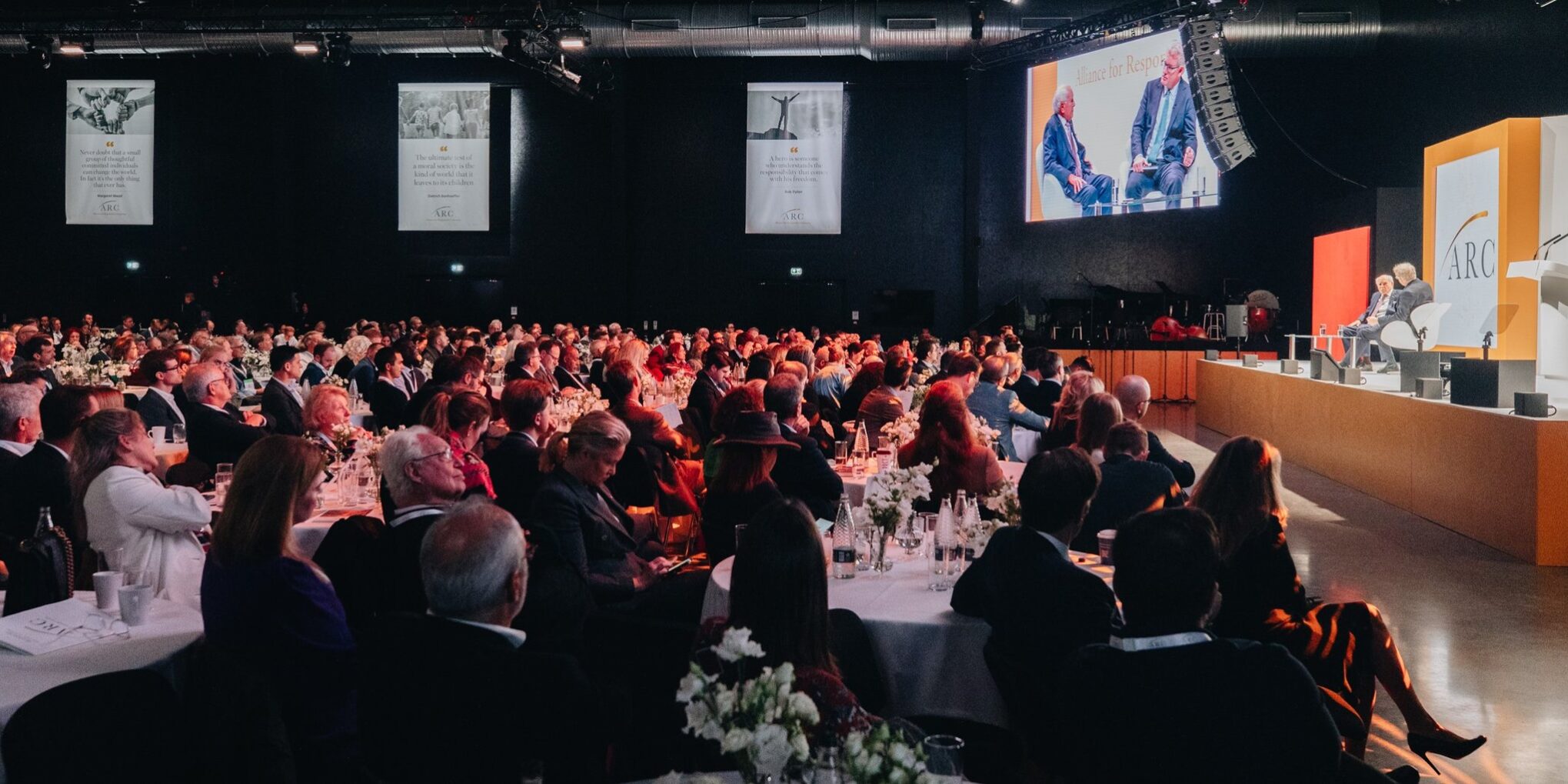This week London Docklands, once a flurry of the creaking timbers, navvies and tarred rigging of imperial trade, has become a busy hub of big ideas by notable figures across many fields.
We have yet to digest all this mind-exchange, debate and speech-giving, and perhaps even more importantly to see the fruit of the private chats and dinners.
From February 17 to 19, London’s ExCeL Centre was home to the Alliance for Responsible Citizenship (ARC) conference, which was sold out with 4,000 participants and a fulsome program of diverse but interesting speakers – all united in opposition to the decline of Western institutions and values.
ARC is a worldwide organisation, launched in 2023 and supported by an advisory board that includes the Canadian author, internet star and psychologist Jordan Peterson and Australia’s former deputy prime minister – himself something of a YouTube star – John Anderson.
With some of the same audience and in equal numbers, the same centrewill be home this weekend to a conference hosted by Bishop Robert Barron’s evangelisation project Word on Fire. The program is entitled simply The Bible and it promises to be more theological and focused than the ARC program.
The keynote speakers include not only Bishop Robert Barron, but English New Testament scholar N. T. Wright, UK broadcaster and writer Justin Brierley, and Australia’s internationally renowned theologian, Professor Tracey Rowland.
Professor Rowland’s presentation is described as a demonstration by the Professor, “that the historical-critical method of reading the Bible, though useful, falls short when it is not integrated with the theological and spiritual dimensions of the faith. Scripture is not only an ancient text to be studied but a living text that speaks directly to the Church and the faithful today”.
While the ARC conference was a broad tent considering a wide spread of “big” ideas, the Word on Fire conference will drill down into the appreciation, importance and literacy of Christian and Biblical revelation in modern society.
This week also marks, on February 17, the 140th anniversary of the birth of a priest and writer who was an influential one-man confluence of meta-history, philosophical analysis and theological reflection.
In many respects, Romano Guardini anticipated by over 90 years the soul-searching about the fate of Europe and the weakening of the foundations of Western culture we see discussed this week in London.
Born and baptised in Verona as Romano Michele Antonio Maria Guardini in 1885, the young Romano would live between the worlds of Italian art and culture and the more analytical world of German theology. His family moved to Germany and he became a German citizen.
His most important published works address the challenges of modern culture, liturgy, personalist philosophy and Christ-centred theology.
During his broad priestly and academic studies, Fr Guardini set about studying the West from many philosophical and historical angles. He admired and wrote about such wide-ranging figures as Dante Alighieri, the French philosopher Blaise Pascal and Socrates.
By the end of two world wars, Guardini had discerned that “modernity” had already disintegrated, driven by dramatic anthropological and social changes wrought by technological change and creeping secularisation.
In the most famous of his many original works, The End of the Modern World and Letters from Lake Como, Guardini’s reflections reveal how far-seeing his insights were about contemporary culture.
American historian and literary scholar Bradley Birzer in a short essay paraphrases Guardini’s overview:
“Modernity, Guardini feared, did nothing less than attempt to destroy the cycles of the seasons, the cycles of man, and the cycles of government and existence. Modernity, in its arrogance, wanted to even out time, to conquer it, and to make it obsolete.”
Guardini was an original thinker. He did not belong to a particular philosophical school. At the same time as the great scholars such as Garrigou-Lagrange, Jacques Maritain and Étienne Gilson were making strides in the recovery of the thought of Aristotle and Thomas Aquinas, Guardini dedicated his study to the great Franciscan thinker, St Bonaventure. He dedicated his doctoral and post-doctoral studies to the “Seraphic Doctor” in whom he found a helpful blend of mystical and Christological thought.
He found Bonaventure’s insights assisted him to understand how the rejection of Christianity began at the end of the Medieval period when, as he writes in The End of the Modern World, “European man was adopting as self-evident truth the point of view which gave to politics, economics, government, science, art, philosophy and education principles and criteria immanent to themselves.”
Romano Guardini identified in many Western societies of his time, and despite their nominal “Christian” identity, an emptiness and abstraction was being easily swayed into the numbing of secularisation and de-Christianisation.
He explained: “Christianity is ultimately neither a doctrine of truth nor an interpretation of life. It is that too, but none of it constitutes its nuclear essence. Its essence is constituted by Jesus of Nazareth, by his existence, his work and his concrete destiny; that is to say, by a historical personality.”
How valuable would Fr Guardini be for both the very welcome ARC and Word on Fire discussions?
Anna Krohn
Executive Director
Thomas More Centre
Image from the Alliance for Responsible Citizenship







